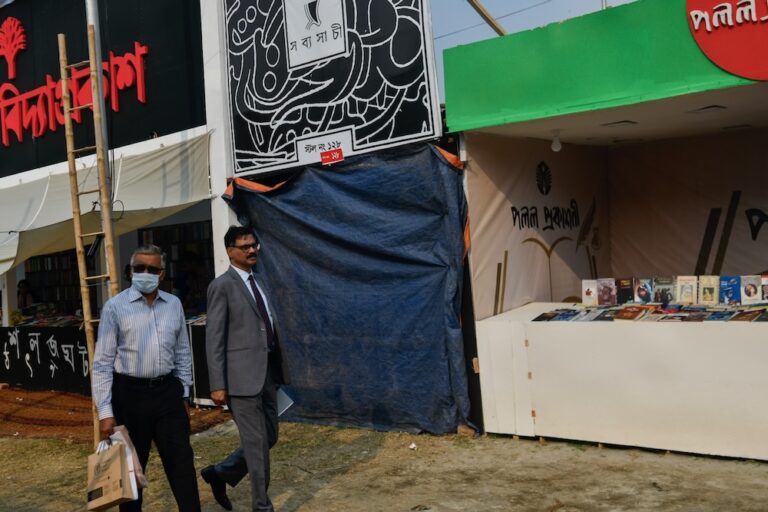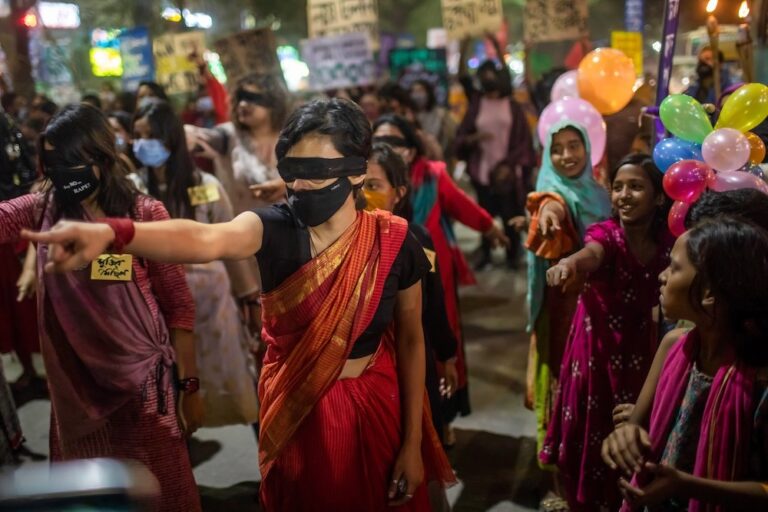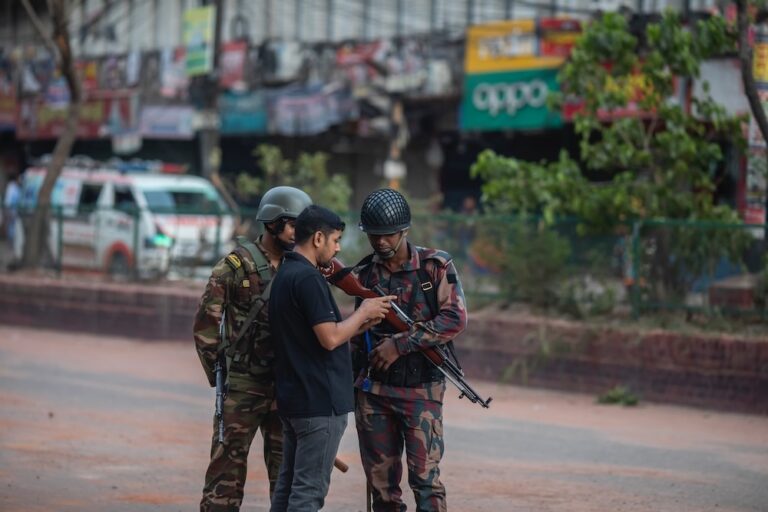(RSF/IFEX) – RSF welcomes the Bangladeshi authorities’ 11 December 2002 release of two British television journalists after more than two weeks’ detention for alleged anti-state activities. However, the organisation is calling for the “immediate and unconditional” release of the journalists’ local assistants, who remain imprisoned and are being treated as criminals and plotters. Reporter Zaiba […]
(RSF/IFEX) – RSF welcomes the Bangladeshi authorities’ 11 December 2002 release of two British television journalists after more than two weeks’ detention for alleged anti-state activities. However, the organisation is calling for the “immediate and unconditional” release of the journalists’ local assistants, who remain imprisoned and are being treated as criminals and plotters.
Reporter Zaiba Malik and cameraman Bruno Sorrentino, of the British television station Channel 4, were released on 11 December and deported a few hours later. Two Bangladeshi citizens who had worked with them, local RSF correspondent Saleem Samad and interpreter Priscilla Raj, were not released.
RSF also asked the government to explain why two local journalists and human rights activists, Muntasir Mamun and Shahriar Kabir, were arrested on 8 December, apparently on suspicion of having connections with the British journalists. Kabir had a heart attack during his interrogation at a police station during the night of 10 to 11 December, but his doctor and family were not allowed to see him. Both men were expected to be sent to Dhaka Prison on 11 December.
“The jailing and deporting of Malik and Sorrentino proves that it was a political matter, aimed at frightening foreign journalists who wish to report freely on the situation in the country,” said RSF Secretary-General Robert Ménard. “We have witnessed a parody of justice and note the ill-treatment of Samad under interrogation. Now we also witness a double-standard, one for European journalists and another for their Bangladeshi colleagues,” he added.
Announcing the release of the Channel 4 journalists, Foreign Affairs Minister Reaz Rahman told a press conference that the government had made an “extraordinary gesture” by freeing them after they had apologised for investigating the presence of Al-Qaeda militants in Bangladesh without the appropriate press visas. He said the journalists had agreed not to use any of the film they had shot while in the country.
Rahman said the cases of Samad and Raj would be considered later, in light of “the laws of the motherland.” Samad, who was arrested in Dhaka on 29 November, four days after Malik and Sorrentino, said he was beaten in prison by police officer Kohinoor Miah during his interrogation.
The two Channel 4 journalists were arrested on 25 November, along with Raj and their driver, Mujib, as they were about to cross the eastern border into India, close to Benapole. Since then, police have persistently obstructed the course of justice.
Mamun, a columnist and academic, and Kabir, a freelance journalist and human rights activist, were picked up at their homes for no apparent reason, but sources in Dhaka said their arrest could be linked to the police investigation of the Channel 4 journalists. Kabir was previously jailed for more than two months at the end of 2001 for investigating violence against Hindus (see IFEX alerts of 8 February, 23 and 4 January 2002). He was released on bail but still faces “sedition” charges.
A petition for the release of Samad and Raj can be found and signed at www.rsf.org.


